The Saturday Read: The last neocons
Inside: Netanyahu’s bodyguard, the Strait of Hormuz, the bros of Blue Labour, Dominic Cummings, Jarvis Cocker, and Tina Brown on Princess Diana.
Good morning. Welcome to the Saturday Read, the best of the New Statesman, in print and online this week. This is Finn with Nicholas.
Iran launched a series of missiles at Israel this morning, after unproductive and inconclusive peace talks in Geneva yesterday. David Lammy, and the foreign ministers of France and Germany, met with the hopes of offering Iran a diplomatic off ramp. It didn’t work. And Trump, never one to break character, claimed “Iran didn’t want to speak to Europe, they want to speak to us.”
He, meanwhile, appears to have cooled down. There were moments last week when the US looked seconds away from joining the war with Israel. But Trump’s peacenik side might still be there - even as the last neocons in the Republican Party try to drag him into the Middle East. He has resisted their advances so far. But if Trump’s unique strain of diplomacy fails, Freddie wonders whether he risks becoming another George W Bush. As ever, thanks for reading, and have a great weekend.
1—“Protecting Bibi”
Ami Dror was Netanyahu’s bodyguard in the late 90s. He writes for us about Israel’s prime minister, with a perspective only afforded to the very few allowed to get so close. FMcR
There was only one small sign of the man that Netanyahu became. I escorted Sara and him to expensive restaurants where they ate together late at night. The first time they left without paying the bill, the owners usually didn’t mind. The second time they were puzzled. By the third time the Netanyahus left without paying, they were angry, literally chasing them in some cases out of the restaurant.
You watch this as a young man and turn it over in your mind. Why didn’t he pay? He could have afforded to. Decades later you know that you were watching a little thief in the process of becoming a big gangster.
2—“Messily, and in black”
If the world has a petrol station, it might just be the Strait of Hormuz: a fifth of the world’s oil and LNG passes through a kink only marginally wider than the English Channel. In the modern economy, writes Will Dunn, oil is everything. Should Iran weaponise the Strait, all of us will feel it. NH
The result for Britain, the US and the eurozone would be higher inflation – and therefore higher interest rates to tame it – coupled with lower growth. The effects would be felt first at the petrol station, then in costlier shopping. Oil and gas are not just oil and gas – they are the plastic that most of the things we buy are made from or packaged in (or both); they are also fertiliser and heat and refrigeration and delivery. The price of energy is the price of pretty much everything, from goods made in Chinese factories to produce grown on British farms.
3—“Burra’s impotent venom”
Michael Prodger does it again! By which, I mean, written another generous and witty profile of an under-appreciated artist. This time it’s Edward Burra and his global tour: from Mexico with Lowry to pre-Civil War Spain. FMcR
What war in Spain and then across Europe awoke in him was a generalised disgust at violence and destruction. Witnessing the soldiers massing at Rye to fight across the Channel unnerved him. Even as they climb into a troop lorry in Soldiers’ Backs (1942) there is malignity in their movement, and when he painted Soldiers at Rye (1941), showing a troop dozing, he gave them beaked plague masks that make the men both theatrical and menacing.
4—“Cowardice”
The grooming gangs operated in the Labour party’s backyard: in industrial towns like Rotherham and Rochdale. And yet, it took the Casey report to pressure Keir Starmer to announce a national inquiry. It’s just another example of the government hiding behind officialdom, writes Hannah Barnes. NH
Politicians must be allowed to change their minds. Admitting you were wrong, being open-minded and receptive to new evidence are signs of strength. But that is not what’s happening with this Prime Minister and his government. Time after time, they seem unable to make a positive argument for either action or inaction. Each Labour government since the war has made a strong moral case for its reforms. Attlee and Bevan with the NHS. Wilson and Jenkins on decriminalising homosexuality. Blair and Brown on international development and child poverty. When will this government do the same?
5—“Freelance critic of the British state”
Nick’s column made me laugh this week, but don’t tell him I said that. He’s been in Oxford watching Dominic Cummings attempt to diagnose and heal the rancour in the nation’s soul. He finds a man driven berserk by his exposure to the state. FMcR
Britain has seen similar outbursts at times of failure. In his claims of discontent among special forces and military intelligence, in his thunderous warnings of ethnic-sectarian civil warfare, Cummings has acquired the frantic disposition of mid-1970s British officials. Watching him, the person who came to my mind was William Armstrong, another chief adviser to a prime minister (Ted Heath), and another man once considered the true power in No 10. He too was prone to dark, rambling introspections about the state of Britain; in 1974, on a rain-lashed government away day at a stately Oxfordshire home, he suffered a nervous breakdown during which he stripped naked, furiously smoked cigarettes and ranted about Red Armies and the collapse of the world order.
To enjoy our latest analysis of politics, news and events, in addition to world-class literary and cultural reviews, click here to subscribe to the New Statesman. You'll enjoy all of the New Statesman’s online content, ad-free podcasts and invitations to NS events.
6—“Queen of Hearts”
A real treat, this Saturday morning, to read legend of the magazine-o-sphere Tina Brown on Princess Diana. She reviews Edward White’s new book, Dianaworld. In it, he makes a daring argument: Diana remade Britain as much as she was made by it. NH
Edward White has pulled off an unusual experiment in his biography of Diana, Princess of Wales – the life of one of the most famous women in history captured entirely in long shot. There are times when his resourceful use of contemporary Everyman diaries and interviews with insightful nobodies provides valuable historical insights, and others when it’s a bit like reading a profile of Lawrence of Arabia from the point of view of the sand. Only occasionally does the real Diana, the practised superstar I lunched with in New York six weeks before she died, break out of the suffocation of mass perceptions and cultural analysis.
7—“Is this hardcore?”
“Old age isn’t a battle,” wrote Philip Roth in 2006’s Everyman, “old age is a massacre.” Harsh. Fergal Kinney watches Jarvis Cocker at the O2 and wonders whether Pulp’s new lyrical theme - getting old - is cool. FMcR
Pulp’s last big statement forms the unexpected high point of tonight’s set. Introducing “This Is Hardcore”, the title track of their 1998 album, Cocker sits at the top of a small illuminated staircase (metaphor klaxon), splayed across a leather Mastermind chair and sipping an espresso, which is brave at 9PM. Against a seedy, dramatic loop, which repeats and throbs like erotic fixation, Cocker purrs about wanting it now, wanting it bad. The song’s lyrics were written to compare the singer’s experience of fame to what he termed his “revulsion and attraction” towards pornography, all with the subtext of his cocaine use.
8—“A collection of guys”
You’ve met the Blue Labour leadership: the iconoclastic Maurice Glasman, the cerebral Jonathan Rutherford. This week, Morgan Jones went in search of the tendency’s cadres. Prepare to meet some of Westminster’s brightest and most ambitious young things. NH
From its beginnings in the aftermath of the financial crisis, it was Maurice Glasman and a small handful of Jons and not a huge amount more. It is now having something of a resurgence, and beginning to develop a degree of internal reality, although the reality of its actual influence remains debated. A Blue Labour group of MPs formed at the end of last year; now a parliamentary staff network has been set up. There are, I’m told, around 15 of these staffers so far, planning a roster of events and meetings and general association. Over the last few weeks, I’ve been speaking to some of the new staff group to try and understand them. What does this lanyard class that hates the lanyard class believe?
Best of the Rest
James Marriott: The “end of history” myth
Andrew O’Hagan: Joan Didion on the couch
Michael Powell: The magic realism of Zohran Mamdani
Harper’s cover story: OCD Nation
And with that…
This week I made a break with habit and tradition and indulged in some aerobic exercise. On Tuesday, alongside several other journalists of various employments and persuasions, I exhausted myself on the rooftop pitches of Powerleague Battersea. It’s an amazing spot: just beyond the railway lines running through to Vauxhall, and overlooked by opulent new-builds. In middle-distance squats the power station itself, that great monument of British industry, now rewired as a fairyland of multinational consumerism.
The pitches we were playing on were “3G”. A warning about “3G”: whatever the term actually means, the main thing I noticed about these pitches was how much of the “3G” ended up in my boots. Removing them upon my arrival home, I managed to turf my living room with strange synthetic stubble. What’s happened to the grassy mudslide of Sunday league?
The New Statesman is home to the finest writing on politics, culture and ideas. To stay up to date, subscribe using the link above.
— Finn, Nicholas and George.


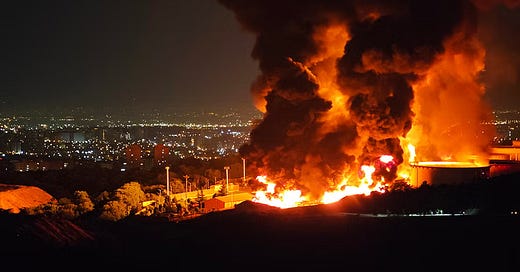



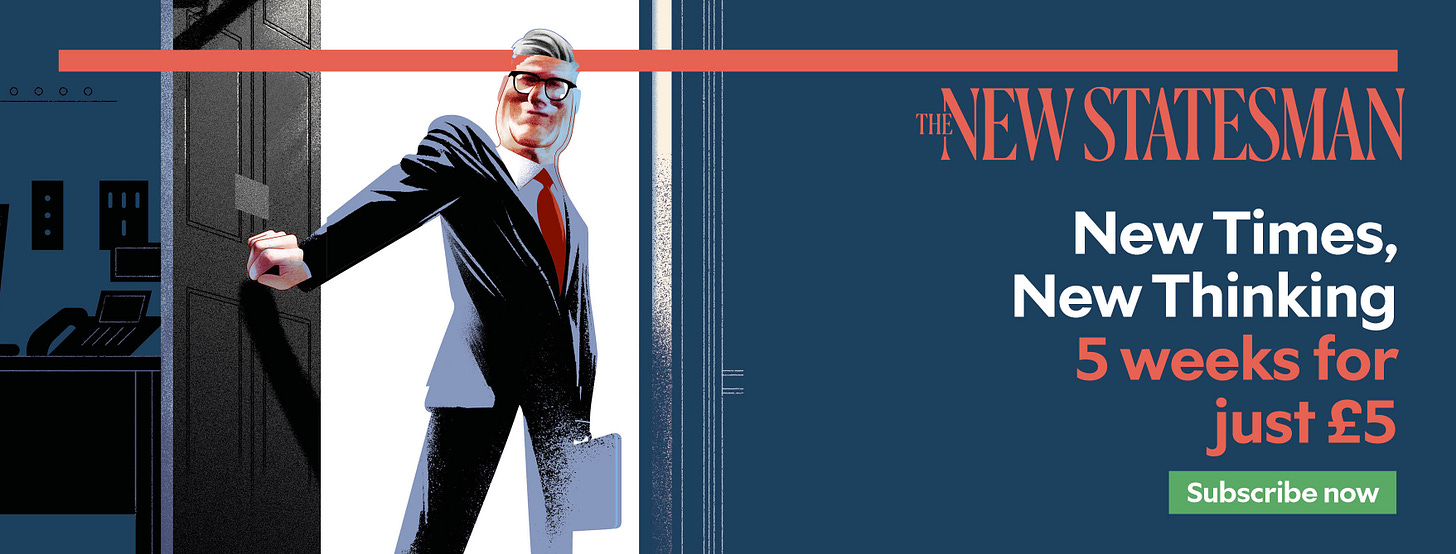
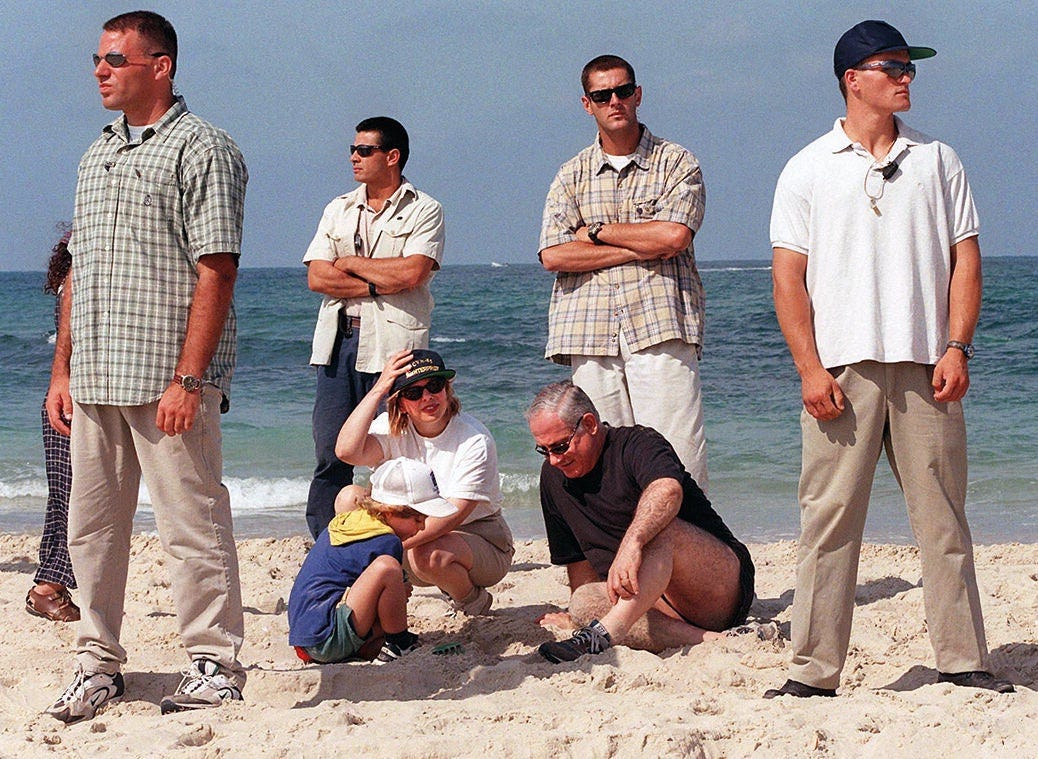
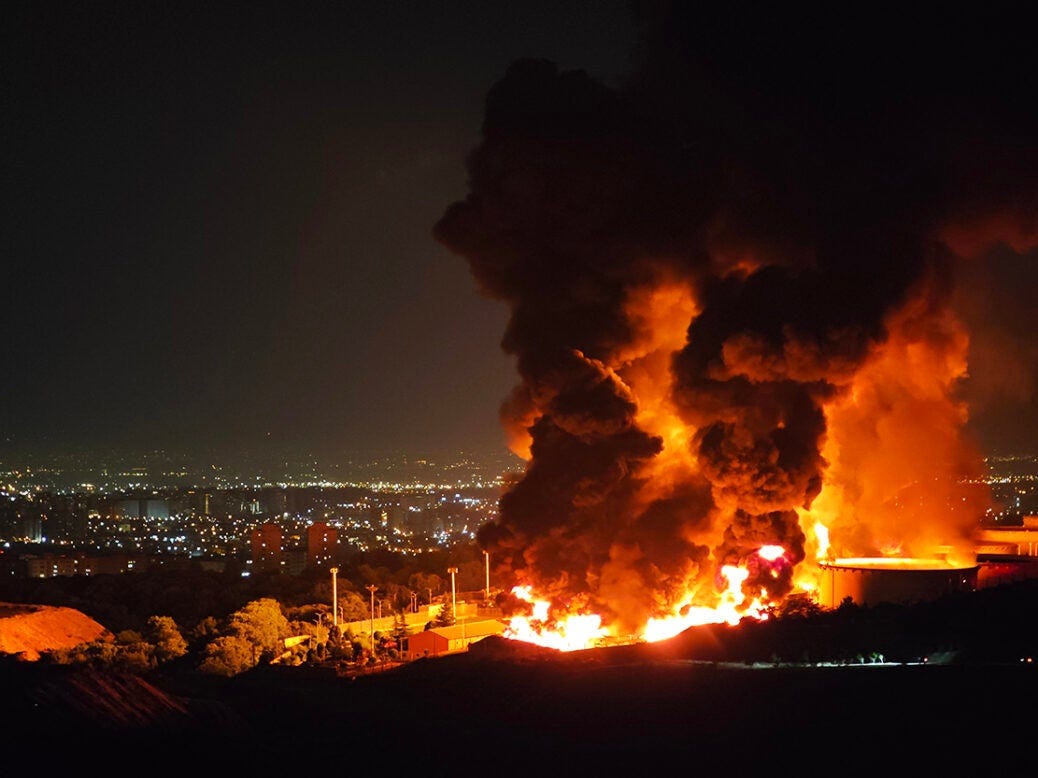
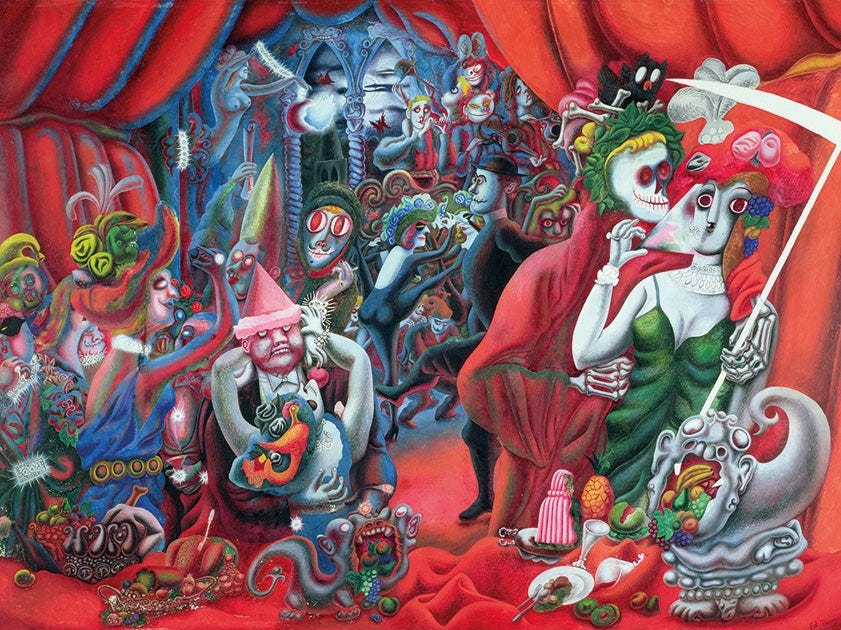

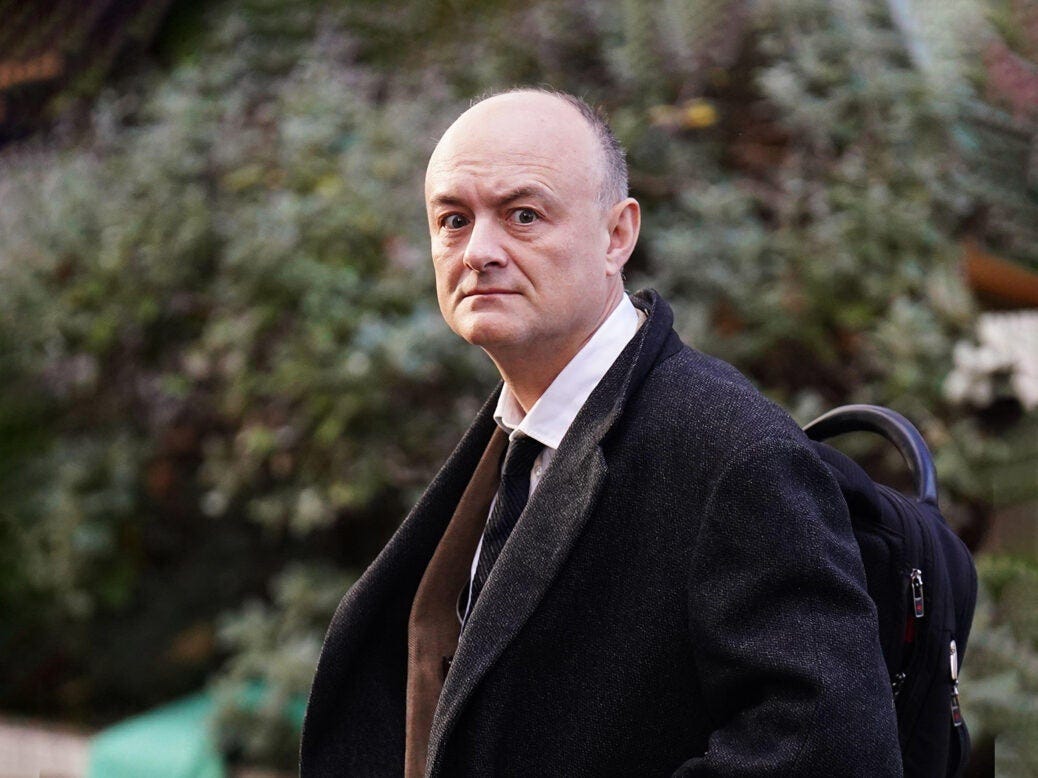





I need help here. You are using terms like lanyard and references to Maurice Glassman that I, an 87 year old graduate of London University, does not understand. How can many of your people be so confident that their opinions are worthy of action. Here I am, in the latter stage of my life, who can remember being sheltered from Luftwaffe bombs under the stairs in my mothers arms, am crippled with doubt as to what action Britain and, or, the West can do to stop the world going up in flames. I have argued for years that the E.U. supplying 70% of the food aid for the population of Gaza was bound to lead to some crises or other. Putting up with Hezbollah holding Lebanon to ransom because we could not be seen to intervene in an Islamic country was shortsighted. Yet when the American airforce tried to subdue the Houthi in Yemen it was totally unsuccessful and had to agree terms equivalent to a ceasefire.
That certainly aged well.